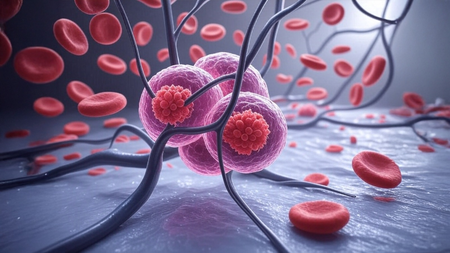
New Delhi, June 13 (IANS) A gene transfer approach to treating the bleeding disorder haemophilia B remains safe and effective long-term, according to a study by UK-based scientists.
Haemophilia B is a rare genetic disorder caused by insufficient levels of a circulating protein called factor IX, which promotes blood clotting.
Scientists from the St. Jude Children’s Research Hospital and University College London used a one-time gene therapy intervention to address the disorder.
Their finding, based on 13 years of follow-up data, published in The New England Journal of Medicine shows an almost 10-fold reduction in annualised bleeding rate. It supports the long-term viability of gene therapy for the disease’s treatment.
“The key benefit is that gene therapy is a one-time, simple intravenous infusion that’s very straightforward to do and potentially has positive effects for a lifetime,” said Andrew Davidoff, from the St. Jude Department of Surgery chair.
Haemophilia B is an X-linked genetic disorder affecting 1 in approximately 25,000 male births.
While the disorder can range in severity, frequent spontaneous bleeding and life-threatening haemorrhages occur due to insufficient blood-clotting factor IX.
Treatment for haemophilia B has traditionally been expensive for lifelong supplementation of the clotting factor, but gene therapy offers a potentially transformative means to address the disorder.
The study included 10 adults with severe haemophilia B who received the gene therapy drug between March 2010 and November 2012.
After initial safety and efficacy successes reported in 2014, the patients were followed over 10 additional years and have all maintained a steady level of factor IX and an excellent benefit in terms of freedom from bleeding.
In the field of gene therapy, questions remain regarding the enduring viability of these treatments, with key stakeholders, including patients and families, waiting to see what the long-term outcomes will be, such as durability and stability of expression.
“For these 10 patients, the factor levels are stable and have been at the same level across these 13 years,” said principal investigator Ulrike Reiss, St. Jude Department of Haematology.
“Further, we have not seen any side effects or toxic events in the long-term follow-up.”
The lack of toxic events is noteworthy. Upon administering the gene therapy, over 90 per cent ends up in the liver.
While a small degree of liver inflammation was noted shortly after vector administration, it was curbed by steroid administration and did not return after initially resolving, the team said.
–IANS
rvt/
